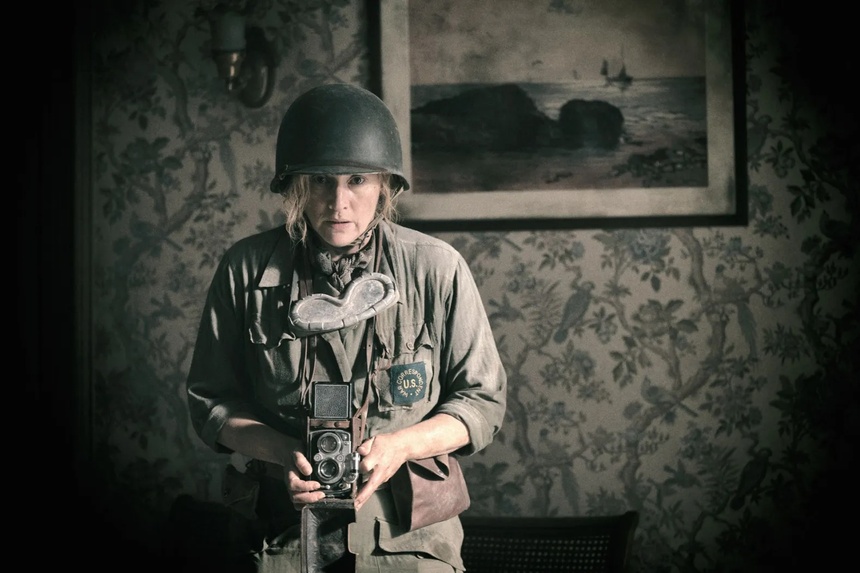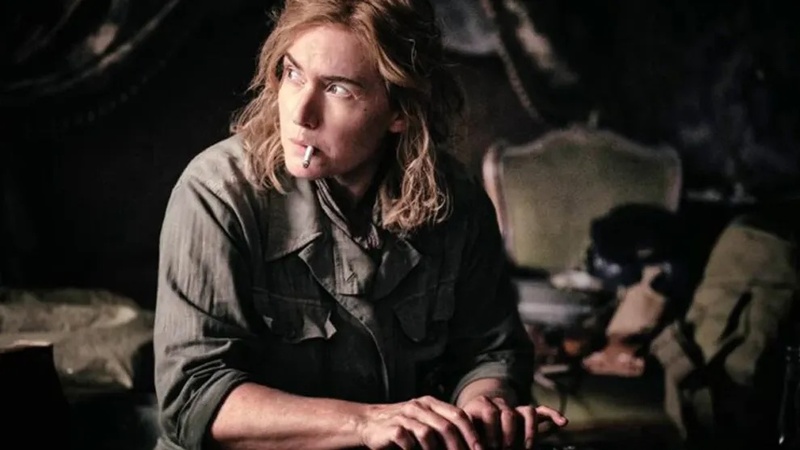LEE Review: Kate Winslet Shines in World War II Biopic
Kate Winslet Stars as Photographer Lee Miller

It might be hard for younger generations to now believe, given the proliferation of doctored photographs, photoshop manipulation, and now the spectre of terrible AI that makes it hard to trust anything we see - but at one point in time, it was photographs that helped turn the tides of war. Images that came out of terrible events such as the Holocaust and the Vietnam War, showed people, especially in Western nations, just what horrors were happening, and being perpetrated on millions of people.
While female war correspondants are still perhaps lower in numbers than men, in the early 20th century, they were almost non-existent. So it does feel a long time coming to have a biopic of one of the most important, Lee Miller. Not only as a woman in the profession, but as any war correspondant, one of the first whose photos of concentration camps were seen by the wider public. Going from a model to a war photographer is a leap, and one that its star Kate Winslet fought hard to bring to the screen. Directed by cinematographer and documentarian Ellen Kuras, based on a book written by Miller's son, Lee focuss on the subject's time and work during World War II, and the effect she had on the craft, and that the war had on her.
Structuing Lee's tale around an interview in the 1970s, that Lee is doing with an unnamed person, we're to assume a journalist or biographer (Josh O'Connor), the story begins in the south of France in 1938, as Lee has left her modelling days behind, with more of an interest in and talent for photograph. She and her friends, including Solange d'Ayen (Marion Cotillard) Nusch Éluard (Noemie Merlant) and Paul Éluard, are enjoying a relatively relaxed lifestyle, while complaining about how too many are being politically seduced by Hitler and the Nazis. Lee meets Roland (Alexander Skarsgård), an artist and historian; they fall in love, and are able to go to Roland's native London to escape the worst of the war.
Quickly frustrated with domestic life, Lee begins work at Vogue, documenting the difficult life in the city and especially the changing roles of women. She takes delight in pissing off famed photographer Cecil Beaton, and has good support from her editor Audrey (Andrea Wiseborough). But this isn't enough for her, and in 1944 she managed to get herself to France, teaming up with fellow American photographer David Scherman (Andy Samberg) and gains access first to towns in France that were nearly devastated, with some of the first photographs of the use of Napalm, then travelling to the last front lines in Germany, where she famously got into Hitler's apartment for a photograph in his bathtub, then on to Dachau and Buchenwald. Her photographs were considered too devastating to be published in the UK, but they were published in the US edition of her magazine.
While biopics do work better when they focus on a particularly eventful or formative period in the subject's life, to anyone without much knowledge of Lee, it would helped to know how much experience she had with photography before the story begins (she worked with Man Ray for years). Still, Winslet shows us a person who is capable and determined, to say the least. She has no qualms about calling out the constant sexism she encounters, Lee's very frank and honest demeanor somewhat cold at times, but perhaps this is born more from a woman who was too smart for her time. Smart enough to make a living from her looks when she could, and parlayed that into a job she prefers. Knowing she has the eye for subjects and moments that men ignore.
It's not hard to guess that Winslet fought hard for this film to be made; she clearly has put her heart and soul into this role, and it fits her quite well. Unafraid of what men think of her, either her body or spirit, she walks over every obstacle to reach her goal. She's matched well with the likes of Skarsgård and Riseborough, and Cotillard, in just one important scene, imparts so much devastation of what happened to so many under Nazi occupation. It's also a terrific change to see someone of Winslet's age looking her age in face and body - she's still a great beauty, but it's tempered by time and no longer needing to impress anyone. Like Lee herself, she wants her work to speak for itself.
It's not a story in which we have to guess at what the subject is feeling or thinking - it seems Lee never hid her emotions necessarily, she simply had a strong constitution, which helped her to take pictures of this most horrific event in human history. In the interview, her chain smoking and straight-vodka drinking in the middle of the afternoon suggest strongly enough that she was never cold, and she was not left unaffected by what she saw.
Given Kuras's past work, the film comes most alive when it shows the war and the havoc it wreaked in large and small ways (though perhaps there is nothing about war that is small), and when Winslet and the other actors are in the camera's eye, the film shines. She moves the story at a steady clip, letting us experience Lee's decisions as she makes them, understanding that what might seem headstrong and unconcerned with consequence, was in fact a deep-seeded need to see stories, especially of women and other marginnalized people, to light.
It perhaps works against itself at times with music that indulges too much in moments that don't need the music to manipulate audience emotion, and the framing device waits until the end to give its reason, opening up an intriguing mystery that, frustratingly, will never be answered.
While it falls into some biopic traps, thanks to a stellar lead performance, Lee is still able to make a statement about the need for those who are willing to shine a light on the most terrible moments of the human race, to hopefully make a difference.
Lee opens in the USA and Canada on Friday, September 27th.
Lee
Director(s)
- Ellen Kuras
Writer(s)
- Liz Hannah
- Marion Hume
- John Collee
Cast
- Alexander Skarsgård
- Kate Winslet
- Andy Samberg








